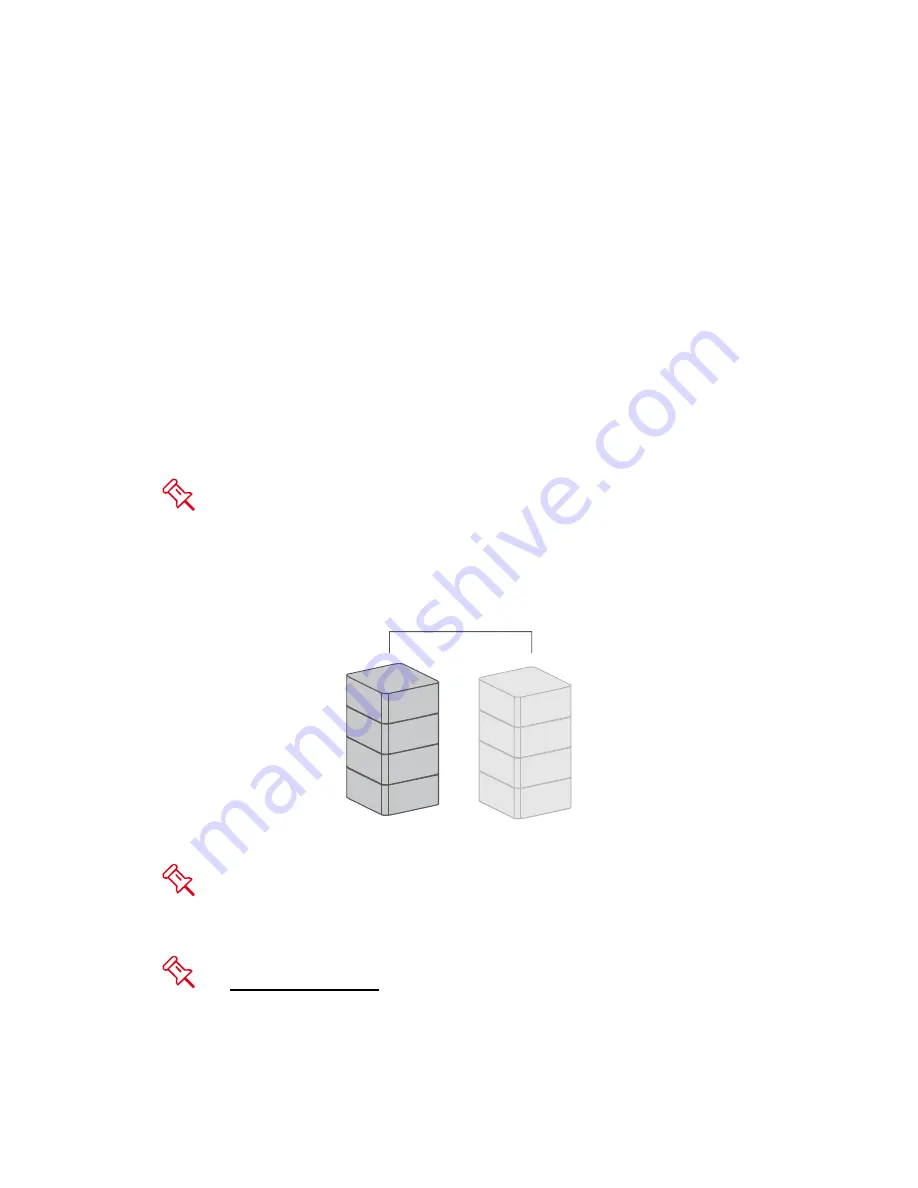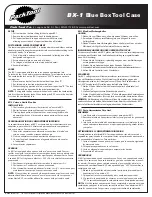
21
RAID 1 (Mirroring)
RAID 1 (Mirroring) consists of at least two drives storing duplicate copies of the
same data. In this mode, the data is simultaneously written to two disks. Thus,
the storage capacity of a two-disk array is combined into a single disk and the
capacity is limited to the size of the smallest disk. The speed of operation is very
slow in comparison to other RAID modes.
During rebuild, the first HDD inserted into one of the HDD slots and is recognized
by the RAID System as the source HDD. To rebuild existing data from a source
HDD to a backup HDD (target HDD), the source HDD must first be inserted into
one of the HDD slots. After the host detects the source HDD, the target HDD
should then be inserted in the other HDD tray. The RAID System will then
recognize the target HDD, the rebuild process will begin when the HDD LED
starts blinking.
In Mirroring mode, only 2 HDDs are allowed for the function to perform
properly. There is no limitation on the order of insertion or the slot number.
However, if all 4 HDDs are inserted, the RAID System can only do Mirroring in
the HDDs positioned in HDD 1 and HDD 2. It is not possible to process two sets
of HDDs at the same time.
RAID 1
Disk 1
Disk 2
A
B
C
D
A
B
C
D
In Mirroring mode, if one of the disks fails, either source or backup, the data
is still available. However, if the source disk fails during the rebuild process, the
data in both disks will be lost.
It is NOT recommended to do
hot swap
for the source disk during the
rebuild process because the data in both disks will be lost.
Summary of Contents for RS-M4QO
Page 1: ...1 2010 07 29 Ver08 ...
















































